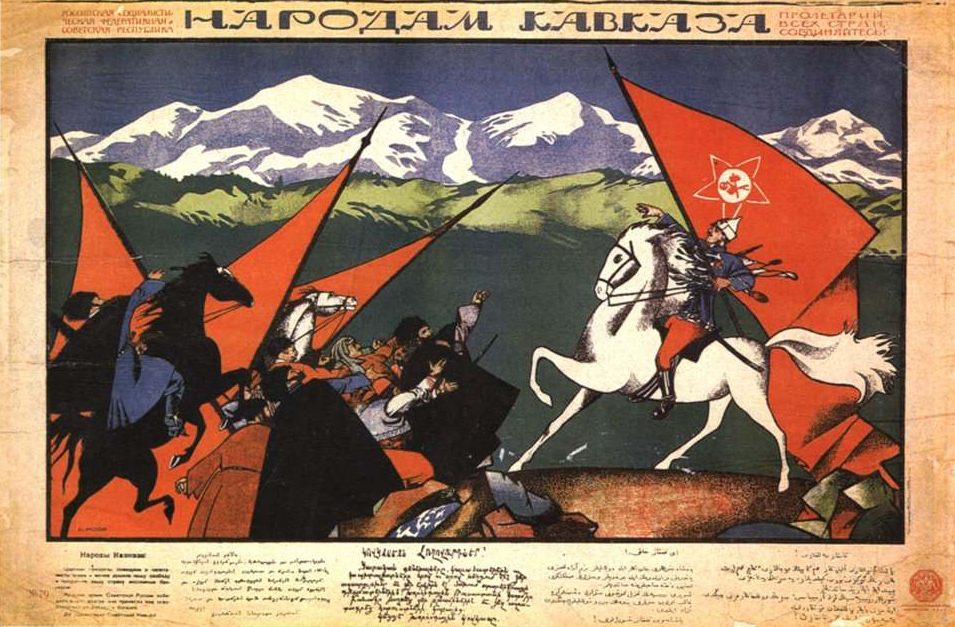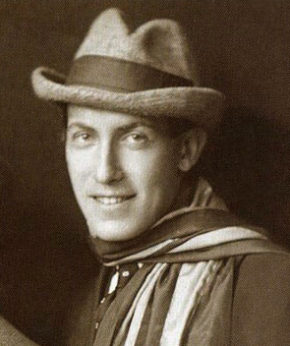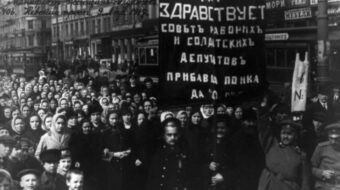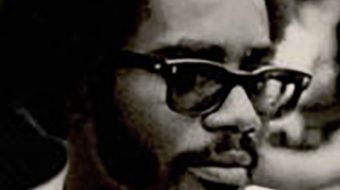
Elsewhere in our pages, People’s World features a number of reflections on the legacy of the 1917 Russian Revolution.

This week we publish the poem “October” by Anatoly Borisovich Marienhof (or Mariengof in Russian), who lived from 1897 to 1962. Poet, novelist, and playwright, he was a leading figure of Imaginism, a poetic flow inside Russian avant-garde which came about after the Revolution of 1917. Now he is mostly remembered for his memoirs that depict Russian literary life of the 1920s and his friendship with fellow poet Sergei Yesenin.
October
We trample filial obedience,
We have gone and sat down saucily,
Keeping our hats on,
Our feet on the table.
You don’t like us, since we guffaw with blood,
Since we don’t wash rags washed millions of times,
Since we suddenly dared
Ear-splittingly to bark: Wow!
Yes, sir, the spine
Is as straight as a telephone pole,
Not my spine only, but the spine of all Russians,
For centuries hunched.
Who makes a louder noise on earth now than we?
You say: Bedlam—
No milestones—no stakes—
Straight to the devil—On the church porch our red cancan is glorious.
What, you don’t believe? Here are hordes,
Droves of clouds at men’s back and call,
And the sky like a woman’s cloak,
And no eyelash of sun.
Jesus is on the cross again, and Barabbas
We escort, mealy-mouthed, down the Tverskoi Prospect….
Who will interrupt, who? The gallop of Scythian horses?
Violins bowing the Marseillaise?
Has it ever before been heard of, that the forger
Of steel bracelets for the globe
Should smoke his rotten tobacco as importantly
As the officer used to clink his stirrups?
You ask—And then?
And then dancing centuries.
We shall knock at all doors
And no one will say: Goddamyou, get out!
We! We! We are everywhere:
Before the footlights, in the center of the stage,
Not softy lyricists,
But flaming buffoons.
Pile rubbish, all the rubbish in a heap,
And like Savonarola, to the sound of hymns,
Into the fire with it…. Whom should we fear?
When the mundiculi of puny souls have become worlds?
Every day of ours is new chapter in the Bible.
Every page will be great to thousands of generations.
We are those about whom they will say:
The lucky ones lived in 1917.
And you are still shouting: They perish!
You are still whimpering lavishly.
Dunderheads!
Isn’t yesterday crushed, like a dove
By a motor
Emerging madly from the garage?
Source: An Anthology of Revolutionary Poetry, ed. Marcus Graham, New York, 1929. English version by Babette Deutsch and Avrahm Yarmolinsky. It also appeared in Modern Russian Poetry: An Anthology (1921), ed. Babette Deutsch.












Comments